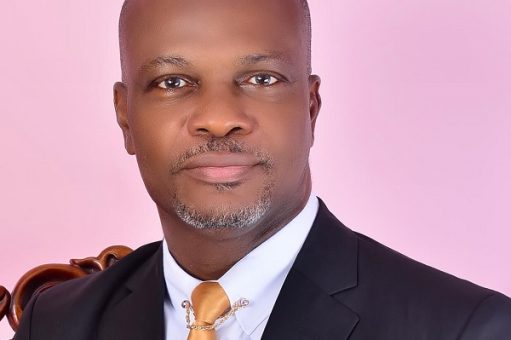Surrogacy as a word means the act of performing some functions in the place of someone else.
It means the process of carrying and delivering a child for another person.
Surrogacy is an arrangement, often supported by a legal agreement, whereby a woman (the surrogate mother) agrees to bear a child for another person or persons, who will become the child’s parent(s) after birth.

Surrogacy refers to motherhood by a third-party female who elects or is commissioned to carry a pregnancy on behalf of another couple.
She delivers a baby and passes it to the commissioning parent at birth.
Surrogacy may be resorted to when pregnancy is medically impossible, or the pregnancy risks are dangerous for the intending mother.
In countries where same-sex marriages are allowed, same-sex couples may opt for surrogacy.
It is a form of assisted reproductive technology.
Monetary compensation may or may not be considered in surrogacy arrangements.
It is altruistic surrogacy if it is not done for financial considerations.
It is commercial surrogacy if it is done for monetary considerations.
Two types of surrogacy arrangements exist, to wit: traditional surrogacy and gestational surrogacy.
In traditional surrogacy, the surrogate mother contributes genetically to the conception of the baby by the fertilization of her eggs via the in-vitro fertilization (IVF) process (i.e artificial insemination of the egg of the surrogate with the semen of the commissioning father).
In gestational or host surrogacy, the surrogate mother does not contribute genetically to the conception of the baby. She is strictly the pregnancy’s carrier.
A prior fertilised egg (embryo) is implanted into the womb of the surrogate who carries the pregnancy to maturity
Most countries have different legal stands on the issue of surrogacy which is quite a sensitive issue with questions being raised as to the propriety of a woman deciding to extinguish her parental responsibilities to a child that she gave birth to based solely on a contractual agreement.
Surrogacy touches on a wide range of issues like human rights, reproductive rights, morality, public policy, child’s rights, parental responsibilities, and rights.
Historically, surrogacy has been with us right from ancient times.
It was allowed under Babylonian law and custom.
The first successful gestational surrogate pregnancy was carried by a woman in 1985 -1986.
The Roman Catholic Church opposes surrogacy and sees it as compromising the sanctity of marriage.
Most Muslims oppose surrogacy and equate gestational surrogacy with adultery which the Koran prohibits since the surrogate carries the sperm of someone, not her husband.
A survey that was done in the United States suggests that evangelicals do not see surrogacy as a moral issue and therefore do not take a stance as to whether it is wrong or not.
There is a form of surrogacy practised in traditional African societies as part of the cultural customary practices of the people.
Among the Anioma people of Delta State, for example, there exists a customary practice where a woman who is unable to carry her own child would enter into a marital contract with another (often younger) prolific woman the terms of which are that men would come and impregnate her, it being understood that the resultant children would belong to the woman who could not bear her own children.
Under this arrangement, the understanding is that the father(s) of these resultant children will not lay claim to them.
The legality of this custom if tested by the courts is doubtful in view of the decision of the court in Edet v. Essien Nyon (1932) 11 N.L.R. 47, which held that any custom that denied a biological father of his children is repugnant to natural justice, equity, and good conscience.
However, I am aware that this is still practised to date.
A case that I prosecuted, The State v.Ikpeoyi charge No MI/23c 2003; Hci/m/8/2003, was a fallout of such a practice where the biological father reneged and started laying claims to the children.
Presently, there is no legal official framework regulating surrogacy in Nigeria.
However, a system of arranged third-party reproduction is common in the country.
Surrogacy is not so much accepted in Nigeria due to the pro-natalist nature of the African society where people promote the desirability of procreation.
This also has affected the setting up of a legal regulatory framework.
Though our laws have not provided for surrogacy, it is still practised in Nigeria.
The African Journal for Infertility and Assisted Conception reports a successful gestational surrogacy involving a 35-year-old married graduate trader with primary infertility of 7 years duration due to mullerian dysgenesis in Southeast Nigeria.
There are agencies in Nigeria that for a fee bring together surrogate mothers and the commissioning parents. They act as middlemen.
An example of such is the “Meet Surrogate Mothers Agency Limited.” In Nigeria, surrogacy has been based on simple contracts and concerns have been raised if this can be enforced in our courts.
Some countries make surrogacy contracts enforceable while some put a ban on it.
US, Ukraine, Russia and Georgia have the most liberal laws in the world allowing commercial surrogacy, including for foreigners.
An example of such is the “Meet Surrogate Mothers Agency Limited.” In Nigeria, surrogacy has been based on simple contracts and concerns have been raised if this can be enforced in our courts.
Some countries make surrogacy contracts enforceable while some put a ban on it.
US, Ukraine, Russia and Georgia have the most liberal laws in the world allowing commercial surrogacy, including for foreigners.
Some argue in some quarters that surrogacy contracts should fall within the class of unenforceable contracts due to questions of morality.
Some feminists say that it is an assault on human dignity, and commodifying women’s bodies in a manner akin to prostitution.
Also, the rights of the child under surrogacy are abandoned, as it becomes a mere commodity within an economic transaction of a good and a service.
Anti surrogacy legislation have been based on the need to prevent the exploitation of the vulnerable, and abuse.
Under Nigerian law, it appears surrogacy agreements can be enforceable although one could question its morality.
It is therefore necessary for a legal framework to be put in place to prevent possible abuse and exploitation of the whole process.
It could be argued that such contracts are contrary to public policy as they could encourage the trade in babies and emotional and financial exploitation of surrogate mothers.
Judging from the extant surrogacy laws in the U.K from whence we got most of our laws, it could be predicted that surrogacy agreements could be enforced in our courts in Nigeria if subjected to judicial test.
Happily, a surrogacy Bill is presently being considered by the House of Representatives.
It has been argued that the absence of a regulatory framework in Nigeria has contributed to the growing unethical practices.
Such a framework would curb the existence of baby factories and the possible exploitation of both surrogate mothers and commissioning parents.
It has also been argued that surrogacy contracts should not be treated as simple contracts because different lives are involved including that of the unborn child.
Consideration should be given to the right of the surrogate mother to change her mind due to the unique nature of human reproduction.
In fact, the International Federation of Gynecology and Obstetrics has recommended that the surrogate’s autonomy should be respected throughout the pregnancy even if her wishes go contrary to that of the intending parents.
The Supreme Court of New Jersey in Re Baby M (1988) 537 A 2d 1227 invalidated surrogacy agreements due to Public Policy concerns.
In that case, the surrogate mother’s right was upheld but custody was however granted to the biological father of Baby M.
Stay ahead with the latest updates!
Join The Podium Media on WhatsApp for real-time news alerts, breaking stories, and exclusive content delivered straight to your phone. Don’t miss a headline — subscribe now!
Chat with Us on WhatsApp








